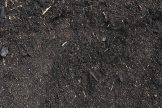The pH of the soil is important in so far as certain elements, vital for plant function and growth, can only be accessed by the plant within a certain pH range. Outside this range the nutrients become “locked” by the soil and so the plant does not thrive. A soil is said to have a neutral pH if it tests as 6.5 -7.0. However some variation around that is acceptable. Azaleas, Camellias, Daphne, Gardenias generally prefer soil pH to be a bit on the acid side, say ideally 6.0. Many plants in the vegetable garden prefer a pH of around 7.5, i.e. a bit alkaline. This is why vegetable gardeners often put Dolomite Lime on their vegie gardens in between crops. This is referred to this as ‘sweetening the soil’. Remember, it is far easier to chose plants according to the existing soil pH, rather than trying to change the soil to suit certain plants.
Changing the soil pH
If soil is too acid, and you want it to become more alkaline, then use Dolomite Lime or Garden Lime to make soil more alkaline. Do not use Builder’s Lime or any other product not specifically formulated for gardens.
If soil is too alkaline, then use Sulfate of Iron or Sulfate of Ammonia to acidify it. The garden product that has the highest concentration of Sulfate of Ammonia is called ‘Hydrangea Blueing Tonic’.
If you are changing the pH of your soil, don’t go overboard. Put a small amount of the lime or sulphate of ammonia on, wait a couple of weeks and then re-test. Please note any product which has high organic content, such as compost or mushroom compost, can have widely varying pH levels due to batch differences through processing. Also, testing soils with very high organic content, composts or manures with powder based kits will result in extreme readings. This is due to the free Ammonium ions present. This does not mean that the product is going to kill your plants.
As a general rule, mushroom compost is on the alkaline side (they add lime in the composting process), and should therefore be used when planting out vegie patches, roses or perennials that prefer alkaline conditions. For plants that require more acidic conditions, use cow manure, household compost or leaf mulch that has not had lime added.





